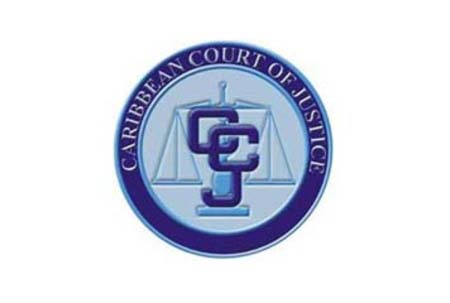The Caribbean Court of Justice (CCJ) has dismissed an application filed by attorney Sanjeev Datadin on behalf of former government parliamentarian Charrandass Persaud to prevent today’s planned sitting of the National Assembly.
Datadin had asked the CCJ on Wednesday to issue an order prohibiting today’s sitting.
The appellants in the case were listed as Persaud, who voted in favour of the opposition-sponsored no-confidence motion of December 21st, attorney Christopher Ram and Opposition Leader Bharrat Jagdeo.
Jagdeo’s attorney, Anil Nandlall, has, however, since said that neither he nor his client had anything to do with filing the case and they have disassociated themselves from it, stating that they never had any intentions of blocking today’s parliamentary sitting.
Datadin’s position was that since there are pending appeals before the CCJ surrounding the controversial passage of the motion, for which there will be implications one way or the other when the regional appellate court makes its ruling, there ought to have been no parliamentary sittings in the interim.
He expressed this view during a pre-trial review hearing on Wednesday for the appeals related to the validity of the no-confidence motion.
Justice Adrian Saunders, President of the Trinidad-based court of last resort for Guyana, however, informed Datadin that he would offer no comment on the issue as there was no application before the court.
Datadin then signalled his intention to file an action, which he subsequently did.
Justice Saunders, together with Justices David Hayton and Maureen Rajnauth-Lee who yesterday heard and determined that Datadin’s application should be dismissed, noted that in light of the Guyana Court of Appeal’s ruling invalidating the passage of the no-confidence motion, the CCJ will issue no order preventing the sitting of the National Assembly.
The CCJ in its ruling said that until and unless it should reverse the Guyana Court of Appeal decision, the status of the government and National Assembly remains “unaffected by the result of the vote on the motion of no-confidence of the 21st day of December 2018.”
The court said that in these circumstances, it considered it to be imprudent to take what it described as “the most unusual step” of restraining the National Assembly from sitting as was being urged by Datadin and applicants.
The court said it also considered that the order paper convening today’s 113th sitting of the National Assembly of the first session (2015-2019) of the 11th Parliament was issued since day April 17th.
Resultantly, the court dismissed the application and ordered the applicants to pay costs to the Attorney General. No amount was stated.
Litany
In his application, Datadin had argued, among other things, that the government’s convening of the National Assembly was to consider a litany of items that could not be reasonably classified as urgent.
According to him, the motion was passed and the convening of the National Assembly is contrary to the rule of law as the National Assembly had been dissolved and as a result the passing of laws and conduct of affairs in the National Assembly would break the status quo and ought not to be permitted.
Though Jagdeo is listed in the legal documents as an appellant, Nandlall has said that the opposition People’s Progressive’s Party (PPP) had nothing to do with the application filed.
As a matter of fact, the attorney said he wanted to make it clear that the parliamentary opposition was in no way associated with the challenge filed, nor was it any way attempting to prevent today’s sitting.
According to Nandlall who is also a member of the PPP and former Attorney General, he had stated their position immediately following the local Court of Appeal’s ruling that while they were going to appeal the decision, they would nonetheless respect the decision “and abide with all its consequences and ramifications.”
On March 29th, noting that the matters are all related, the CCJ consolidated the three separate appeals filed on the no-confidence motion.
The three challenges to the motion are Christopher Ram against the Attorney General (AG), the Leader of the Opposition Bharrat Jagdeo and Minister of State Joseph Harmon; Jagdeo against the AG, Speaker of the National Assembly Dr Barton Scotland and Harmon; and Persaud against Compton Herbert Reid, Dr Scotland, Jagdeo and Harmon.
The no-confidence motion, sponsored by Jagdeo, was declared passed by Speaker Dr Scotland following a vote in its favour by then APNU+AFC parliamentarian Persaud on the night of December 21st.
Following a challenge by government in the High Court, Chief Justice (Ag) Roxane George-Wiltshire found that even though Persaud was made a parliamentarian in violation of the Constitution, his vote was valid and that the December 21st no-confidence motion against the APNU+AFC government was validly passed with the votes of 33 elected members of the 65-member Assembly. She has also ruled that the passage of the motion should have triggered the immediate resignation of the Cabinet.
The Guyana Court of Appeal, by a majority decision, on March 22nd overturned the Chief Justice’s ruling, saying that the correct mathematical formula for finding the “absolute” majority was not used. While Chancellor Yonette Cummings-Edwards (Ag) and Justice of Appeal Dawn Gregory agreed that 34 votes were required for the motion to be carried, Justice of Appeal Rishi Persaud dissented.






